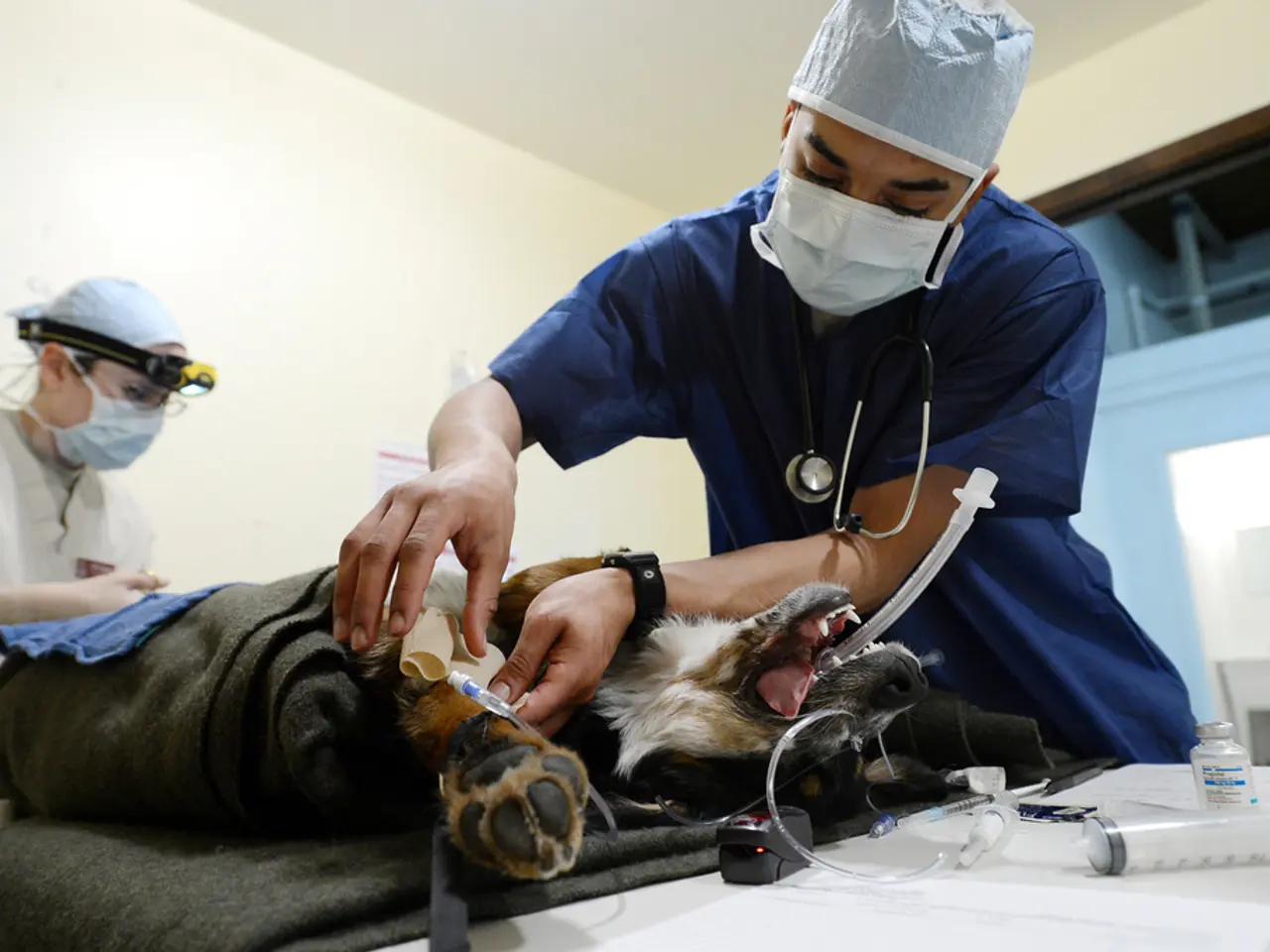Lawmaker publicly discusses personal organ donation story amidst ongoing Congress debates over reforms
In a recent hearing by the House Energy and Commerce Subcommittee on Investigations and Oversight, concerns about organ donation practices, particularly in Kentucky, have come to light. The focus of the discussion was on instances where organ donation preparations proceeded while patients showed signs of life.
A federal investigation revealed that Kentucky Organ Donor Affiliates (now Network for Hope) authorized organ removal attempts on patients who were not fully confirmed dead. One notable case involved a Richmond hospital patient who was preparing for organ retrieval after a drug overdose; the surgery was halted only when a doctor noticed the man moving and making sounds, and the patient survived.
These incidents have raised serious ethical and procedural concerns, with lawmakers and federal agencies describing the situation as a breach of the fundamental medical principle "do no harm" and highlighting the fracturing of public trust in the organ donation system.
In response, the federal government, including the Health Resources and Services Administration (HRSA), is developing new national safeguards. Proposed policies would empower anyone involved—family members, hospital staff, or organ donation personnel—to call for a pause in donation preparations if there are doubts about the patient's eligibility or signs of life.
Kentucky's organ procurement organization has initiated changes to its protocols, while national reforms are underway to ensure more stringent verification of death before organ removal. However, hospitals have not yet provided testimony on these reforms.
Rep. Brett Guthrie, R-Ky., shared his personal experience with organ transplantation and its impact on his views to improve the system. Guthrie's mother never found an organ in time before declining so fast that neither a live-organ transplant procedure could be attempted. Guthrie emphasized the importance of maintaining donor participation and ensuring families have confidence in the system or know the questions to ask in end-of-life situations.
A live-organ transplant procedure allows a living person to donate a part of their organ, which will later grow back but can help repair the damaged organ in the person receiving the partial transplant. However, Guthrie stated that a human organ ready for transplantation should never have reached the point of being in the operating room in the highlighted case, as there were many indications the person was not going to die.
The investigation found that premature organ procurement procedures endanger the lives of organ donors. In the case where the surgery was halted, staff were uncomfortable with commencing the organ procurement process, and some refused to participate after witnessing tears rolling down the patient's face.
Currently, around 100,000 people are waiting for an organ transplant. Guthrie intends to keep his donor status and emphasized the need for more people to donate organs. He considers the issue a bipartisan one and stated that the work will be done when confidence in the system has been shored up.
References: [1] NPR. (2021, March 17). Kentucky Organ Donation Affiliates Faces Federal Investigation Over Premature Procurement. Retrieved from https://www.npr.org/2021/03/17/980491319/kentucky-organ-donation-affiliates-faces-federal-investigation-over-premature-procurement
[2] The Washington Post. (2021, March 17). Kentucky organ donation agency under federal investigation over premature procurement. Retrieved from https://www.washingtonpost.com/health/2021/03/17/kentucky-organ-donation-agency-under-federal-investigation-over-premature-procurement/
[3] Louisville Courier Journal. (2021, March 17). Kentucky organ donation agency under federal investigation over premature procurement. Retrieved from https://www.courier-journal.com/story/news/2021/03/17/kentucky-organ-donation-agency-under-federal-investigation-over-premature-procurement/4783404001/
[4] The Hill. (2021, March 17). Guthrie calls for organ donation reform following federal investigation. Retrieved from https://thehill.com/homenews/house/543092-guthrie-calls-for-organ-donation-reform-following-federal-investigation
- The controversial organ donation practices in Kentucky, brought to light in a recent hearing, have sparked debates in both the health-and-wellness and politics sectors, with lawmakers questioning if these incidents violate the fundamental principle of medical ethics: "do no harm".
- In light of the federal investigation revealing premature organ removal attempts on questionably deceased patients, there's an increased emphasis on integrating science and medical-conditions into discussions about organ donation, with the aim of establishing stringent verification processes to protect both donors and recipients.




